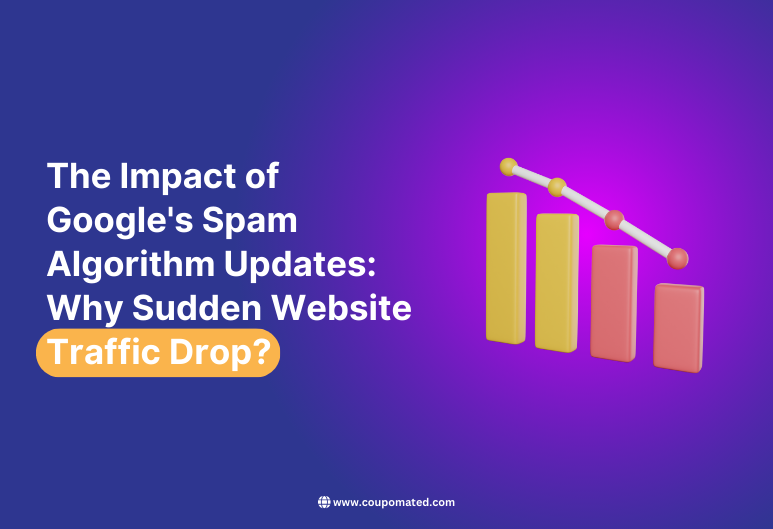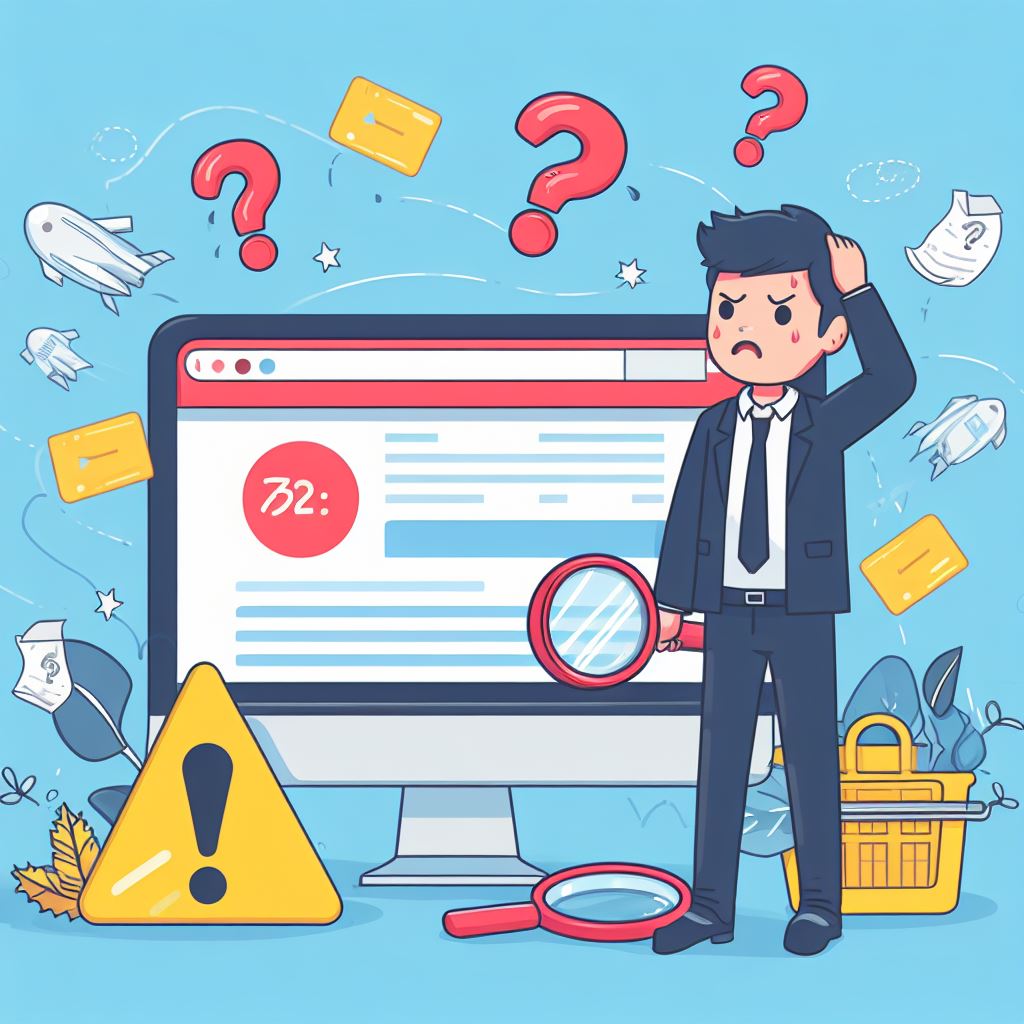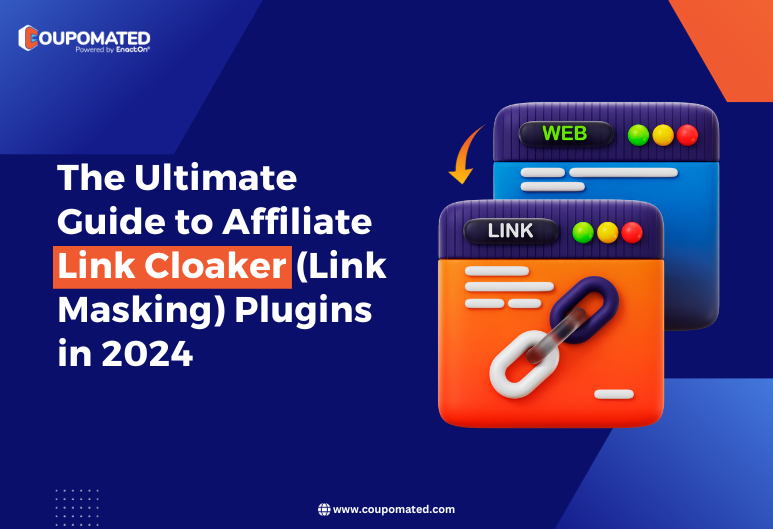
Did you see a website traffic drop on your website recently? If you’re someone who looks after a website, this can be worrying. But there’s a way to keep track. You can set up an account with a special code to see how your website is doing.
No need to stress. I have a list of things you can do to help your website get more visitors again.
We’ll look at why this might be happening and check other things that can change how many people visit your website. We’ll see how being easy to use on phones and being active on social media can help.
So, get a drink and let’s learn about why website visitors might go down!
If you see fewer people coming to your website, it’s important to know why.
Usually, people who run websites first see fewer messages or sales from their website. This is a sign something might be wrong.
There are many ways to see if fewer people are visiting your website. A common way is using Google’s tool. There’s also another tool called Cora, but it can be costly. It checks how your website shows up in search results.
To find out why your Google traffic has decreased, here is a list of things to check.
A Brief Overview of Google’s Algorithm Updates
Google’s primary aim is to provide users with the most relevant and high-quality search results. To achieve this, the tech giant rolls out hundreds of minor updates every year. However, it’s the significant algorithm updates that make headlines and ripple through the SEO community. These updates can drastically rearrange search result rankings, favouring some websites while penalising others.

Google Spam Algorithm Update: What Is It?
The Google spam algorithm update is designed to identify and penalise websites that employ deceptive or manipulative tactics to rank higher. These tactics can include keyword stuffing, cloaking, auto-generated content, using hidden text, or participating in link schemes. Essentially, any method that contravenes Google’s Webmaster Guidelines could land a website in hot water when a spam algorithm update rolls out.
Why Sudden Website Traffic Drop?

When webmasters notice a sudden drop in traffic, the Spam algorithm update is often a prime suspect. This update can directly penalize sites deemed as spammy or offering low-quality content. Common reasons for penalization include:
- Auto-generated Content:
- ● Overview: With the advancement in technology, there’s been a growth in tools and software that can auto-generate content for websites. Whilst this might seem like a time-saving solution, it often lacks the authenticity and quality that human-written content offers.
- ● Google’s Perspective: Google’s primary aim is to provide its users with valuable and relevant content. As its algorithms become more sophisticated, they can easily detect content that’s machine-generated or lacks depth. Such content is often deemed low-quality.
- ● Impact: Websites that rely heavily on auto-generated content can face penalties, leading to a decline in their search rankings and, consequently, a drop in organic traffic.
- ● Overview: With the advancement in technology, there’s been a growth in tools and software that can auto-generate content for websites. Whilst this might seem like a time-saving solution, it often lacks the authenticity and quality that human-written content offers.
- Unnatural Links to Your Site:
- ● Overview: Backlinks, or links from other websites pointing to yours, play a crucial role in SEO. However, not all backlinks are beneficial.
This blog is also helpful- Steps to Take After Receiving an Unnatural Links Warning from Google Webmaster Tools - ● Google’s Perspective: Google values natural, high-quality backlinks that are relevant to your content. Links that are bought, exchanged, or are from low-quality sites can be considered “unnatural.”
- ● Impact: Having a significant number of unnatural links can harm your website’s credibility and trustworthiness, leading to potential penalties and a drop in rankings.
- ● Overview: Backlinks, or links from other websites pointing to yours, play a crucial role in SEO. However, not all backlinks are beneficial.
- Cloaking and Sneaky Redirects:
- Overview: Cloaking refers to the practice of presenting different content to search engines than what’s shown to users. Sneaky redirects, on the other hand, send users to a different URL than the one they initially clicked on.
- Google’s Perspective: Such deceptive techniques compromise the user experience and are against Google’s Webmaster Guidelines.
- Impact: Websites found employing cloaking or sneaky redirects can face severe penalties, including de-indexing from search results.
- Overview: Cloaking refers to the practice of presenting different content to search engines than what’s shown to users. Sneaky redirects, on the other hand, send users to a different URL than the one they initially clicked on.
- Hidden Text and Keyword Stuffing:
- ● Overview: Some websites attempt to manipulate search rankings by hiding text (making it the same colour as the background) or overloading content with keywords.
- ● Google’s Perspective: Google advocates for transparency and content that benefits the user. Hidden texts and unnatural use of keywords are seen as attempts to mislead the algorithm.
- ● Impact: Engaging in such practices can lead to penalties, causing a website’s rankings to plummet.
- ● Overview: Some websites attempt to manipulate search rankings by hiding text (making it the same colour as the background) or overloading content with keywords.
- Site Abused with Third-party Spam:
- ● Overview: Websites can sometimes be compromised by third parties who inject malicious content or spammy links.
- ● Google’s Perspective: Whilst Google understands that third-party spam might not always be the fault of the website owner, it prioritises the safety and security of its users.
- ● Impact: A compromised website can be flagged, leading to warnings being displayed to users or even removal from search results until the issue is resolved.
- ● Overview: Websites can sometimes be compromised by third parties who inject malicious content or spammy links.
Several high-profile websites, including major e-commerce platforms and news portals, have felt the sting of these updates, resulting in significant losses in visibility and revenue.
#1 Coupon API Provider
The best coupon feed API in India. Access 1000+ stores and deals with a single API
The Relationship Between Algorithm Updates and Website Traffic
The symbiosis between the Algorithm Update and website traffic is undoubted. As algorithms evolve, they redefine the parameters for website rankings. Complying with Google’s Webmaster Guidelines is not simply a recommendation but a necessity. While short-term fluctuations in website traffic are normal and often friendly, sustained drops signal a deeper issue, frequently linked to algorithmic shifts.
How Affiliate Marketing Businesses Can Adapt to Google’s Spam Algorithm Updates?
Adaptation is the key to digital resilience. To navigate the hectic waters of Google’s frequent updates:
- ● Continuously educate oneself on Google’s evolving guidelines.
- ● Prioritise high-quality, original content that offers genuine value to readers.
- ● Ensure the website’s structure is user-friendly and optimised for search engines.
- ● Conduct routine website audits, check for any potential red flags or areas of improvement.
Tips to Fix a Sudden Drop in Website Traffic
Experiencing a sudden drop in website traffic can be alarming, especially if it happens after a search engine algorithm update. Such a decline can impact your online visibility, sales, and overall brand reputation. Here are some expert-recommended strategies to counteract this decline and regain your website’s traffic:
- Update Your Auto-generated Content:
- ● Importance: Search engines, especially Google, prioritize original and valuable content. Content that is auto-generated can often lack depth, uniqueness, and relevance, leading to a lower ranking on search engine results pages (SERPs).
- ● Action Steps:
- ◾ Review your website content to ensure it is tailored to your target audience’s needs and interests.
- ◾ Avoid using software or tools that produce content automatically. Instead, invest in creating high-quality, original content that provides value to your readers.
- ● Importance: Search engines, especially Google, prioritize original and valuable content. Content that is auto-generated can often lack depth, uniqueness, and relevance, leading to a lower ranking on search engine results pages (SERPs).
- Review and Remove Unnatural Links:
- ● Importance: A website’s backlink profile plays a crucial role in its search engine ranking. Unnatural or spammy links can harm your website’s credibility and lead to penalties.
- ● Action Steps:
- ◾ Conduct regular audits of your website’s backlink profile.
- ◾ Identify and disavow or remove any links that appear unnatural, spammy, or irrelevant to your website’s content.
- ● Importance: A website’s backlink profile plays a crucial role in its search engine ranking. Unnatural or spammy links can harm your website’s credibility and lead to penalties.
- Address Cloaking and Redirect Issues:
- ● Importance: Cloaking and sneaky redirects can mislead both users and search engines, leading to a poor user experience and potential penalties from search engines.
- ● Action Steps:
- ◾ Ensure that your website displays the same content to both users and search engines.
- ◾ Identify and remove any techniques that display different content based on the user’s device or search engine bots.
- ● Importance: Cloaking and sneaky redirects can mislead both users and search engines, leading to a poor user experience and potential penalties from search engines.
- Eliminate Hidden Text and Keyword Stuffing:
- ● Importance: Overloading content with keywords or hiding text can be perceived as manipulative tactics by search engines, leading to lower rankings.
- ● Action Steps:
- ◾ Review your content to ensure it reads naturally and is free from excessive keyword repetitions.
- ◾ Make sure all text on your website is visible to users and does not employ any tactics to hide it from view.
- ◾ Review your content to ensure it reads naturally and is free from excessive keyword repetitions.
- ● Importance: Overloading content with keywords or hiding text can be perceived as manipulative tactics by search engines, leading to lower rankings.
- Secure Your Website:
- ● Importance: A secure website is essential for user trust and safety. Websites that are vulnerable to third-party spam attacks can be penalized by search engines.
- ● Action Steps:
- ◾ Regularly update your website’s software and plugins to the latest versions.
- ◾ Implement strong security measures, such as SSL certificates and firewalls.
- ◾ Monitor your website for any suspicious activities or potential breaches.
- ● Importance: A secure website is essential for user trust and safety. Websites that are vulnerable to third-party spam attacks can be penalized by search engines.

In conclusion, while the Google Spam Algorithm Update aims to improve the overall search experience for users, it’s essential for website owners to stay updated with Google’s guidelines and best practices. By proactively addressing any issues and ensuring your content is of high quality, you can mitigate the risk of a sudden website traffic drop and maintain a strong online presence.

Ultimate guide to Affiliate Link Cloaker(Link Masking) plugins in 2024
Affiliate link cloaking is also known as Link Masking. In the dynamic world of affiliate marketing, staying ahead of the curve is not just an advantage; it’s a necessity.

10 Advanced Tips For Page Speed Optimizing Your WordPress Coupon Website
Having a fast-loading coupon website is not just crucial for a better user experience, but it can also boost your..
